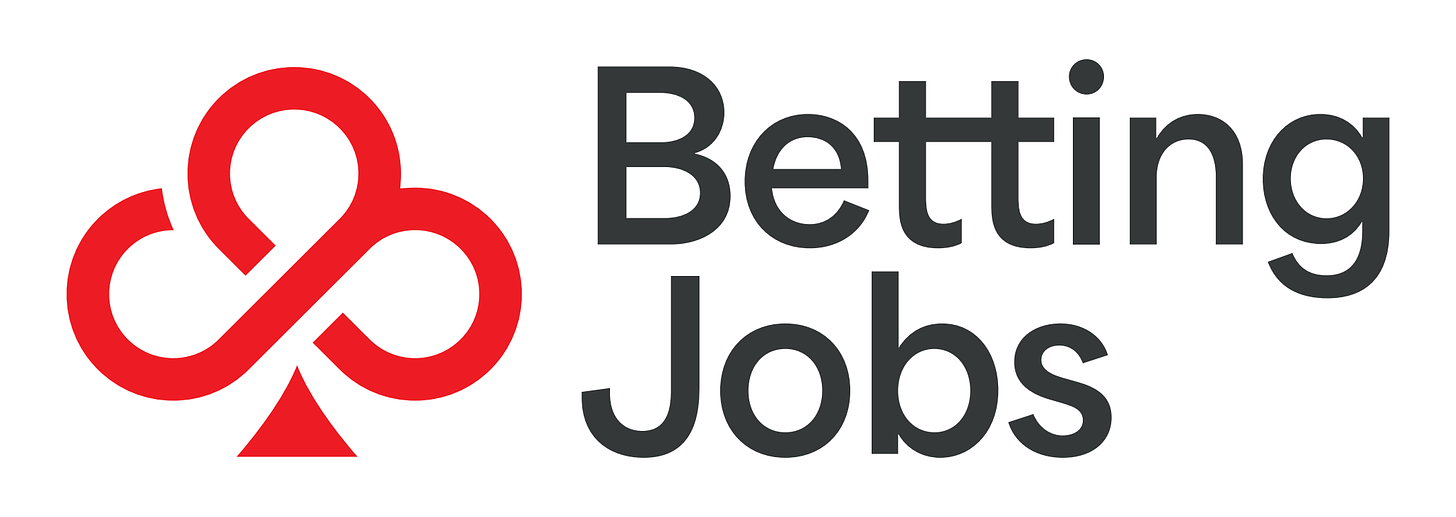Good morning. On today’s agenda:
The Florida OSB skirmish could be heading to the Supreme Court.
Mounting pressure: ASA slams XLMedia over soccer player Insta posting.
UK racing launches affordability checks survey…
… and the UKGC says it has received 1,800 consultation responses.
I hear that train a-comin’, it’s rollin’ ’round the bend.
Florida OSB
Florida’s sports-betting plans have been derailed since the moment Gov. Ron DeSantis and the Seminole inked their new compact in 2021.
Mystery train: In recent months, it appeared Florida was putting the train back on the tracks. It was victorious at the US Court of Appeals in DC and then the court denied West Flagler’s request for an en banc rehearing. Following the court victories, the relaunch of sports betting in Florida was a matter of if, not when, with some saying the Hard Rock betting app would be available any day.
Things can change quickly: That is no longer the case. Florida is now being bombarded in what has become a two-front battle.
The federal case is still active and hurtling toward the Supreme Court of the United States.
On Tuesday, West Flagler filed a petition with the Florida Supreme Court challenging the compact on the grounds that it violates the Florida Constitution.
With filings and responses, the best-case scenario would see sports betting return sometime around Thanksgiving.
Other scenarios could see the legal fight drag on for years.
Above average: Attorney Daniel Wallach gave the Seminole Tribe a slightly better than 50% chance of prevailing. “Do I think online sports betting will ultimately be allowed under the compact? It’s probably a better than 50% chance that the Seminole Tribe will end up having the ability to roll out online sports betting,” Wallach told the News Service of Florida.
He also noted that dual litigation would cause significant delays, win or lose.
“What is known is these parallel judicial proceedings will likely cause further delay in the timing of the rollout of online sports betting.”
Amendment 3 is the magic number: The state filing leans heavily on Amendment 3, which was passed in 2018 and requires casino gambling expansions to go before Florida voters and receive a 60% share of the vote to pass. The new suit filed at the Florida Supreme Court makes many mentions of it.
From the filing, which was carefully perused by Wallach:
“This petition seeks to redress actions taken by the Florida legislature and governor to expand casino gambling in Florida in violation of the Florida Constitution. In 2018, Florida voters approved Amendment 3 adding Article X, Section 30 to the Florida Constitution.”
“When the people voted overwhelmingly with over 70% of the vote to adopt Amendment 3, they understood its provisions also limited the expansion of sports betting. The plain language of the amendment applies to all forms of casino gambling, including sports betting.”
“The governor and legislature have attempted to avoid the Florida Constitution’s mandate by having the 2021 compact and the Implementing law ‘deem’ online bets placed anywhere in the state to have occurred ‘exclusively’ on tribal lands where the bets are received.”
“The governor exceeded his authority by entering into a compact with the Seminole Tribe granting the tribe the exclusive right to offer off-reservation online and in-person sports betting throughout the entire state.”
There is some disagreement on Amendment 3 and sports betting. Amendment 3 reads: “As used in this section, ‘casino gambling’ means any of the types of games typically found in casinos and that are within the definition of Class III gaming in the Federal Indian Gaming Regulatory Act.”
Amendment 3 also lists the exceptions: “As used herein, ‘casino gambling’ does not include pari-mutuel wagering on horse racing, dog racing or jai alai exhibitions.” Sports betting is not mentioned.
Wallach believes sports betting falls outside the definition of casino gambling in Amendment 3. Gov. DeSantis disagreed with that assessment when he signed the compact in 2021.
US notebook
Kentucky: The online market officially opens later today, two weeks after retail operations began in the state. With bettors able to begin depositing money into pre-registered accounts on September 7, Gov. Andy Beshear said online sportsbooks have notched up more than 60,000 mobile accounts in Kentucky.
** SPONSOR’S MESSAGE ** With Kentucky, Maine and Vermont set to go live within the next six months, operators in these regions can use Compliable’s platform to ensure a smoother licensing journey.
Simplified license applications – ability to apply across multiple states
Help along the way – FAQs portfolio and 1-to-1 support available
Unique Compliance Dashboard – manage licenses and track applications
Read more about the onboarding process here
ASA’s XL warning
The UK’s advertising watchdog has slammed affiliate XLMedia over a lack of responsiveness with regard to an “irresponsible” Instagram posting.
Sermon on the Mount: The Advertising Standards Authority has hit out at the gambling affiliate XLMedia for its “apparent disregard” for the advertising code after an Instagram posting was found to have breached the rules around using players under 25 for advertising gambling.
The posting was for XLMedia’s Freebets.com and featured the then Chelsea soccer player Mason Mount. Mount, now at Manchester United, was 24 at the time of the posting.
Wrist/slap: The ASA said it has “reminded” XLMedia of its responsibility to “respond promptly to enquiries” and told the company to do so in future.
Tempted by the fruit of another: The ASA added that although it acknowledges the nature of affiliate advertising, and that the ad was not for gambling itself, it still placed consumers “in a position where they would be interacting with gambling services”. It noted that Mount was the central focus of the ad.
Don’t scare the horses
UK racing mounts a rearguard action on affordability checks.
Horse/bolt: The British Horseracing Authority, Racing TV, At The Races and the Racing Post have launched a survey of the UK betting public to gauge opinion around the subject of the UK Gambling Commission’s proposed affordability checks ahead of the deadline for public responses to the consultation exercise, which comes to a close on October 18.
The press release said UK racing’s various stakeholders were concerned that the financial risk checks as set out in the Gambling Act Review White Paper “will further drive bettors away from the sport”.
The bodies pointed to the “significant amount of correspondence received on this issue… with many punters already subject to betting restrictions by operators”.
Horse blanket: The BHA’s director of communications and corporate affairs Greg Swift once more repeated his organization’s opposition to “blanket affordability checks”, and urged the government and the Gambling Commission to “reconsider their proposals”.
He added that the BHA was “also aware of the significant concern among racing fans about current and future affordability checks” and was keen to provide an opportunity for them to have their voices heard.
Editor of the Racing Post, Tom Kerr, who recently got into a spat with the Commission’s CEO Andrew Rhodes over an alleged “blatant lack of balance” in the paper’s affordability debate, said readership interest in the subject was running high.
“We’ve had thousands of emails, letters and messages from readers expressing dismay and anger about the Gambling Commission’s proposals for affordability checks,” he said.
“It is vital that the voice of punters is heard in this consultation.”
Miller time
Thine will be done: During a speech at the Regulating the Game conference this week, Tim Miller, executive director at the Commission, said there had been over 1,800 responses so far to the financial risk and vulnerability checks consultation.
He added that it was particularly important to note that the consultation was not about whether to introduce the measures, but how it would be done.
Echoing Rhodes comments about the Post’s coverage, he said “there's been some misunderstandings around the financial risk check proposals and what they really mean”.
Cyber, punks
In a timely warning, the Nevada Gaming Commission has reminded operators they have until the end of the year to provide cybersecurity risk assessments.
It’s almost like they knew: Last December, the Commission revised its rules to require casinos to address cybersecurity with the regulators. The reminder comes after Nevada Gaming Commissioner Brian Krolicki called for a public update regarding the recent cybersecurity attacks on MGM and Caesars.
The Las Vegas Review-Journal reported Krolicki as saying the “priority” was to ensure “patrons are made whole and the systems are secure”.
“But I think at some point in time when there’s the energy and understanding of what just happened if we could get some kind of briefing on what’s transpired that’s appropriate for public record and perhaps a policy going forward.”
** SPONSOR’S MESSAGE ** BettingJobs is the global leading recruitment solutions provider to the iGaming, Sports Betting and Lotteries sectors. Boasting a 20-year track record supporting the iGaming industry, and with a team of experts and world class knowledge, it’s no surprise BettingJobs is experiencing rapid growth with outstanding results. Does your company have plans to expand teams to cope with strong growth and demand?
Contact BettingJobs.com today where their dedicated team members will help you find exactly what you are looking for.
Australia notebook
Stars are out tonight: Casino operator Star Entertainment is aiming to raise around A$770m ($491m) in equity and debt due to the clobbering its financial position has taken following a regulatory crackdown. A national push to tackle money laundering and other financial crime linked to gambling has resulted in a significant drop in clientele while spending on compliance has soared, the company disclosed to the markets on Monday.
Star slashed more than 500 jobs earlier this year and it recorded a net loss of A$1.55bn in the last financial year
New South Wales: The state government has declined to officially endorse a total ban on gambling advertising as proposed by a federal legislative committee in June. According to a report in The Guardian, concerns about the level of gambling advertising fall short of seeking the ultimate sanction of a total ban.
A spokesperson said the government “recognises that current advertising restrictions do not go far enough to meet community expectations”.
But pressed on whether NSW supports the ban, the spokesperson said the NSW government would only say it is “supportive of actions to restrict the current level of advertising”.
European notebook
Norway: The Norwegian Gambling Authority, Lottstift, said it has been authorized to order nine banks operating in the country to reject payments to and from specific identified accounts connected with offshore gambling operators.
The NGA also says it can now inspect the nine to see if they are complying with the law on processing transactions with unlicensed gambling operators.
LatAm notebook
Colombia: The regulator Coljuegos has published a draft resolution to cap advertising spend measured as a percentage of the operator’s reported revenue and taxes paid the year previously. The draft includes fines equalling 100% of any overspend of the allowable limit.
The bill also appears to hobble any possible new entrants with a limit on annual marketing spend equal to a multiple of average monthly salary.
Meanwhile, sports teams would be prohibited from accepting advertising or sponsorship from unlicensed gambling operators.
Esports notebook
Australia: The government has said it will amend computer game classification to prohibit minors from playing games with simulated gambling. At the same time, loot boxes will attract an advisory rating.
The government said last weekend that attorneys-general representing federal, state and territory governments were unanimous in updating the Guidelines for the Classification of Computer Games.
Computer games containing social casino and other simulated gambling content will receive a mandatory ‘R’ rating, which limits their use to people over 18 years old.
Loot boxes will require a minimum ‘M’ rating, meaning they contain material not recommended for those under 15 years old.
The changes will apply from September next year to give the industry time to adjust to the new rules.
Calendar
Oct 9-12: G2E Las Vegas
Oct 16: Gaming in Germany, Berlin
Oct 26: Reputation Matters, London
An +More Media publication.
For sponsorship inquiries email scott@andmore.media.










